Home > Articles > The Archives > Chubby Wise: One of The Original Bluegrass Fiddlers
Chubby Wise: One of The Original Bluegrass Fiddlers
Reprinted from Bluegrass Unlimited Magazine
February 1977, Volume 11, Number 8
Although bluegrass music has produced a number of great fiddlers and old-time fiddle players have influenced the art, the name of Chubby Wise must rank as one of the most significant. If one accepts the idea that bluegrass originated with Bill Monroe’s band of the middle 1940s which pulled together all of the proper instruments and vocal stylings, then Wise like Monroe, Flatt, Scruggs and the late Cedric Rainwater must be considered present at the creation. Unfortunately, Chubby never went on to front great bands of his own but remained a sideman and featured solo artist. While never obscure, this situation has nonetheless relegated him to somewhat of a background position as a member of that milestone bluegrass band. However, Chubby Wise’s career as a country and bluegrass fiddler is most certainly a significant one and deserves attention in its own right.
Born in Lake City, Columbia County, Florida on October 2, 1915, as Robert Russell Wise, Chubby first learned music from his father, a local fiddler of some renown. Chubby learned a few banjo chords at about the age of six so he could back up his dad. A little later, he fell in love with Riley Puckett’s guitar stylings and took up that instrument. While Chubby developed some skill as a guitar picker, he never really equaled the ability of his blind idol.
Chubby’s interest in the fiddle did not develop until his early teens when he heard and met Bryan Purcell, a Florida state champion. Chubby then decided that the fiddle would be his instrument and set about mastering it. Drawing his major inspiration from Purcell, but also from such professionals as Curly Fox, Clayton McMichen and Fiddlin’ Arthur Smith, Robert R. Wise soon developed into a highly skilled fiddler.
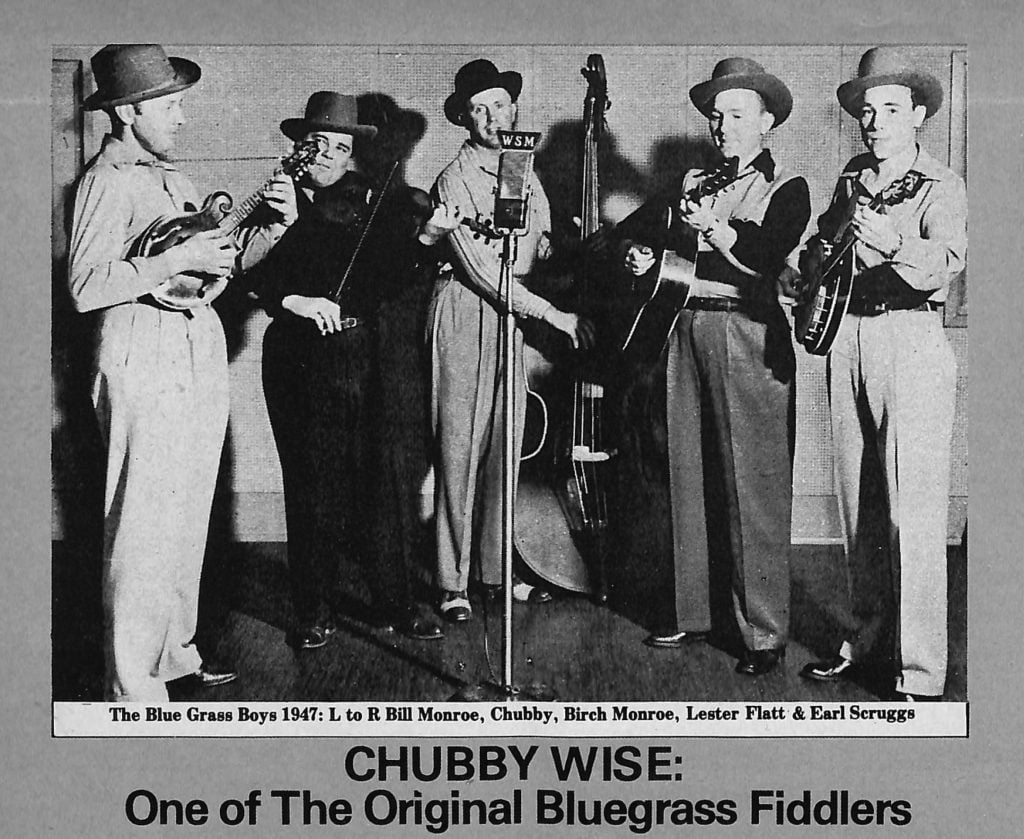
By the time Cnubby reached adulthood, he lived in Jacksonville with his wife and infant daughter and drove a cab by day and fiddled in clubs, bars and at dances by evening. One of his best friends, another young Florida fiddler named Ervin Rouse, also played in some of the same places. One night at about 2:00 A. M. the two friends decided to go down to the railway station and see the Seaboard Air Line’s brand new streamliner, Orange Blossom Special, which proved to be the most magnificent train the duo had ever encountered. Returning to Chubby’s apartment for food, Ervin suggested that they compose a fiddle tune with train sounds and call it “Orange Blossom Special”. Chubby recalls that they put the instrumental part together in about 45 minutes. Later Ervin, with some possible help from his brother Jack added a full set of lyrics and secured a copyright for it in Ervin’s name (without Chubby’s objection). Somewhat later in June, 1939, the Rouse Brothers waxed the song on Bluebird and although the original recording did not achieve hit status, it attracted enough attention that others such as Bill Monroe and Fiddlin’ Arthur Smith picked it up and helped make the tune one of the all-time country and bluegrass instrumental favorites.
Leaving Jacksonville in the winter of 1937-38, Chubby went to Gainesville where he secured a steady job fiddling with the Jubilee Hillbillies. This group constituted one of the few professional country bands in the state of Florida and managed to keep pretty busy with their radio work, personal appearances and dances. The Florida fans liked a wide variety of music and the Jubilee Hillbillies repertoire covered a wide range. Chubby recalls playing all kinds of material from traditional hoedowns and current Bob Wills and other western swing tunes to popular numbers like Hoagy Carmichaels “Stardust”. In fact, Chubby developed some of the stylings in that period which have appeared on some of his Stoneway albums of recent years.
The original Jubilee Hillbillies fragmented as a group not long after Pearl Harbor and the American entry into World War II. Some members went into defense work while others entered military service. Chubby attempted to keep the group together for a while but gave up when he received the opportunity to join Bill Monroe and the Blue Grass Boys at WSM on a trial basis. Chubby had not played much of the mountain styled fiddle of such previous Monroe sidemen like Tommy Magness and Art Wooten and some doubt existed as to whether or not Chubby would adapt his western swing influenced fiddle to the Monroe sound. For a time, Bill carried other fiddlers too such as Floyd Ethridge and Carl Story but eventually Chubby made the grade. Chubby gives Bill Monroe a great deal of the credit for helping him convert to the proper sound recalling that Bill spent hours helping Chubby produce the style that the Blue Grass Boys needed. Chubby had also listened often to his predecessor which also proved to be quite helpful.
When Chubby Wise joined the group in 1942, the band consisted of Bill, Clyde Moody and Cousin Wilbur Westbrook. By the end of 1945, the band included Lester Flatt, Earl Scruggs and Howard Watts “Cedric Rainwater”. Chubby feels that this latter group produced a somewhat different sound, that which we call bluegrass today although it was not such a noticeable change at the time but a more evolutionary shift. In Chubby’s opinion, the sound just became more “rounded out”, particularly with the addition of Lester and Earl. Contrary to some views, Chubby believes that Earl Scruggs played a phenomenal banjo at the time he came with the Blue Grass Boys.
Bill Monroe and the Blue Grass Boys constituted an extremely popular band during the period and Chubby was quite busy. The group played numerous personals and did an early morning radio show and a “Noontime Neighbors” show in addition to the Opry. Chubby played on all of Bill’s Columbia record sessions during 1945-1949. Occasionally, he also recorded with other artists including Hank Williams, Red Foley, Wally Fowler, Denver Darling and Clyde Moody. It was with Clyde that Chubby composed the hit song “Shenandoah Waltz” with Moody writing the lyrics and Wise the music.
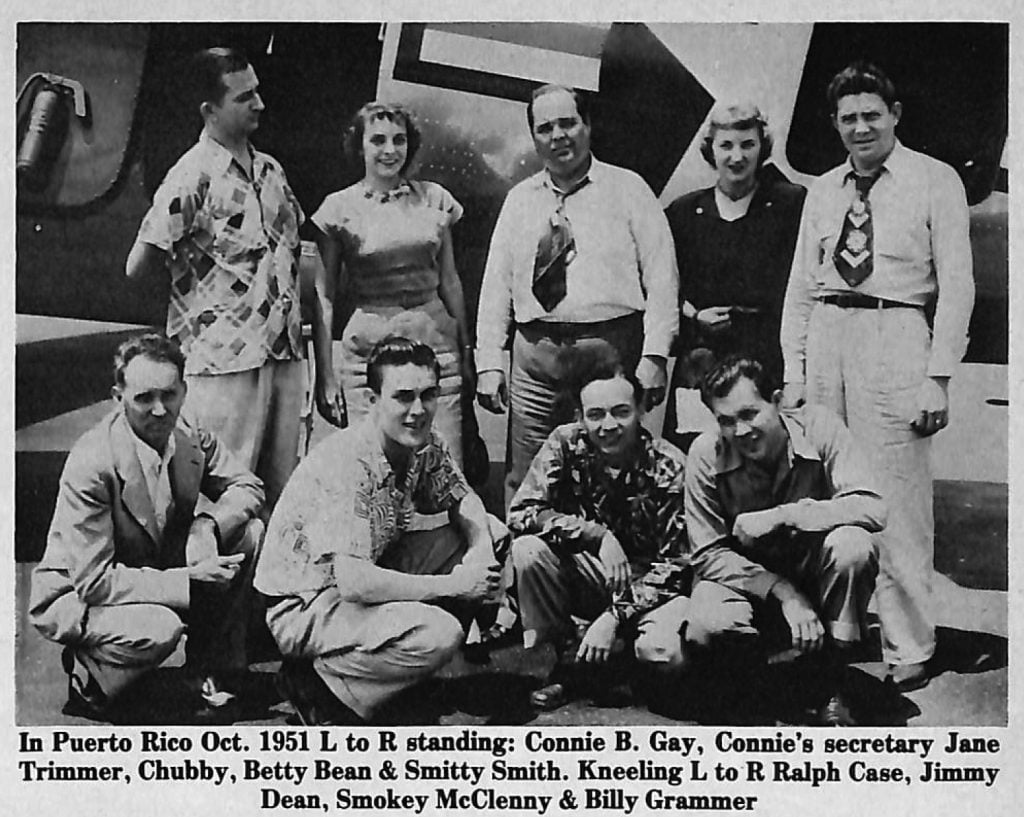
In January, 1948, Chubby left the Blue Grass Boys and with Clyde Moody went to WARL in Arlington, Virginia to work for Connie B. Gay. Clyde headed a group called the Radio Ranchmen which in addition to Chubby included Joe and Buddy Wheeler. After a year, they went to Durham, North Carolina but Chubby soon became dissatisfied and returned to the Washington, D. C. area. In the fall of 1949, he rejoined Bill Monroe. Although his second stint as a Blue Grass Boy lasted only a few months, it did permit him the chance to appear on Bill’s final Columbia session of October 22, 1949, along with Mac Wiseman, Rudy Lyle and Jack Thompson.
Leaving Bill Monroe for the last time early in 1950, Chubby moved to Detroit and played briefly with the York Brothers. He then spent a brief spell with Lester Flatt and Earl Scruggs then based at WVRK in Versailles, Kentucky and at Lexington’s Kentucky Barn Dance. Although Chubby’s tenure with the Foggy Mountain Boys lasted only a few months, he did participate in one Columbia session with them, recording six tunes with them including “Jimmy Brown, the Newsboy” and the classic duet of “I’ve Lost You” by Lester and Everett Lilly. Following this, he returned to the Washington, D. C. area and played a lot of local club dates. Others doing the same thing at the time included Roy Clark and Jimmy Dean.
In 1954, Chubby Wise returned to Nashville and the Opry again. This time, he went as a fiddler with one of the most popular groups on the country scene— Hank Snow and the Rainbow Ranch Boys. Except for an 18-month period, 1963-1965, Chubby spent the next 16 years with Hank, leaving only in March, 1970.
In many respects, the years with the Hank Snow troupe represented the high point of Chubby’s career as a sideman. The band toured extensively throughout the United States and some 15 other countries as well. Chubby always got to do one instrumental number on each show—invariably the “Orange Blossom Special”—and got quite a thrill delighting audiences as far from his native Florida as London, England and Hong Kong.
During these years with a name country group, Chubby did not totally absent himself from bluegrass music as he participated in sessions for Mac Wiseman on Capitol and Red Allen and Hylo Brown on Starday. He also played considerable fiddle on a Rainbow Ranch Boys album on Starday and did an album of fiddle tunes on a budget label. He participated in some country recording sessions, especially those with his boss, Hank Snow, but also twin fiddled on the “Corrine Corrina” cut of the extremely popular Fightin’ Side of Me album of Merle Haggard’s recorded live in Philadelphia.
In the 18-month interval that Chubby did not perform with Hank during the early to mid-sixties also saw him again active in bluegrass. He made one tour with the Stanley Brothers. Chubby recorded an album with Hazel and Alice and made some recordings with Red Allen and Frank Wakefield.
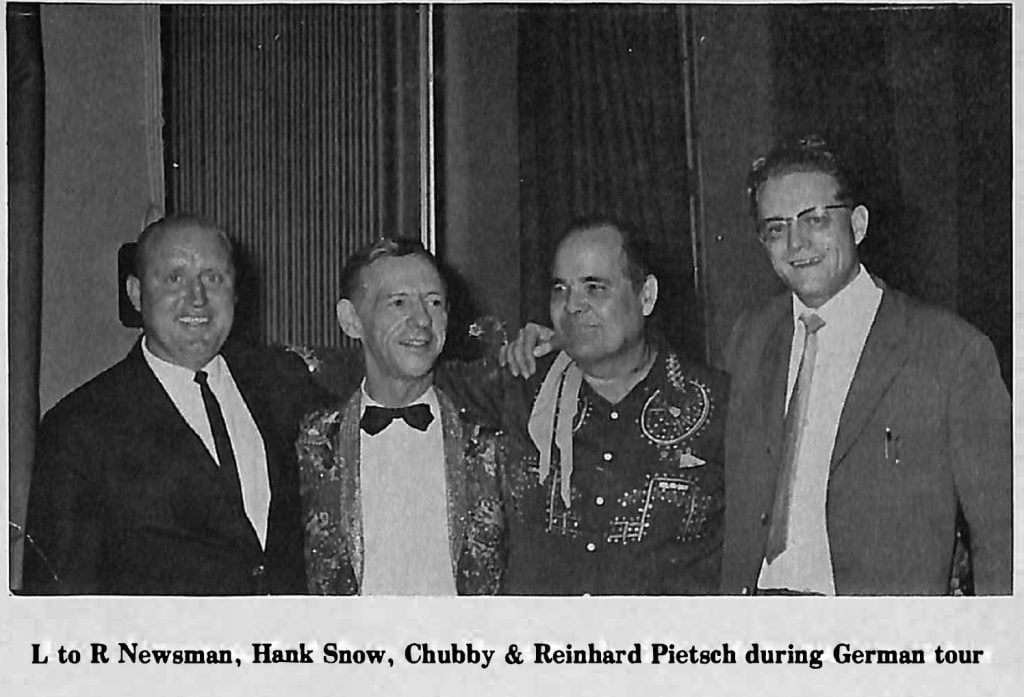
In the fall of 1969, Chubby made some country fiddle recordings for Stoneway Records of Houston, Texas. The tunes received an unexpectedly enthusiastic reception in the Lone Star State and demands for appearances for him in that region followed. Chubby, torn between the security of a steady job with Hank Snow and the chance of striking out as a solo artist hesitated. Although he had enjoyed steady work in Nashville, he had never really done that well financially and had been able to raise his family only with his wife’s help, working as a nurse. Finally, the two decided to try Texas.
It had been the Stoneway recording of the old Bob Wills tune, “Maiden’s Prayer” which provided the impetus for Chubby Wise’s new career as a solo fiddle act. In Texas and elsewhere, the recording had created a demand for his playing at a variety of locations including dances, clubs and rodeos. Eventually, Chubby’s wife, Rossi, became his booking agent and for the last few years has managed to keep him quite active. Each summer he also plays at several festivals and thus has made the best of both the revival of western swing and the resurgence of bluegrass. He has managed to sneak in a few bluegrass recording sessions here and there, such as the one with Charlie Moore on Wango which produced “Legend of the Rebel Soldier”, and an album on the Round label of California with Frank Wakefield, Don Reno and others. However, most of his recent efforts on record have been on the Stoneway label on which he has had more than a dozen albums released. While most of the albums have been with a light country backing of more interest to the western swing or middle-of-the-road fan, a few have been more in the bluegrass vein or with Howdy Forrester, another veteran Nashville fiddler who appeals to both bluegrass and western swing fans.
In retrospect, one may note that as the fiddler with Bill Monroe’s band during the formative years of bluegrass is alone enough to make the name of Chubby Wise remembered. However, other contributions may also be noted. He helped Ervin Rouse compose “Orange Blossom Special”, which must certainly rank as the most original fiddle tune of this century. He has also spent nearly 40 years as one of the more durable sidemen and featured fiddlers in bluegrass and country music.
Share this article
1 Comment
Leave a Comment Cancel Reply
This site uses Akismet to reduce spam. Learn how your comment data is processed.
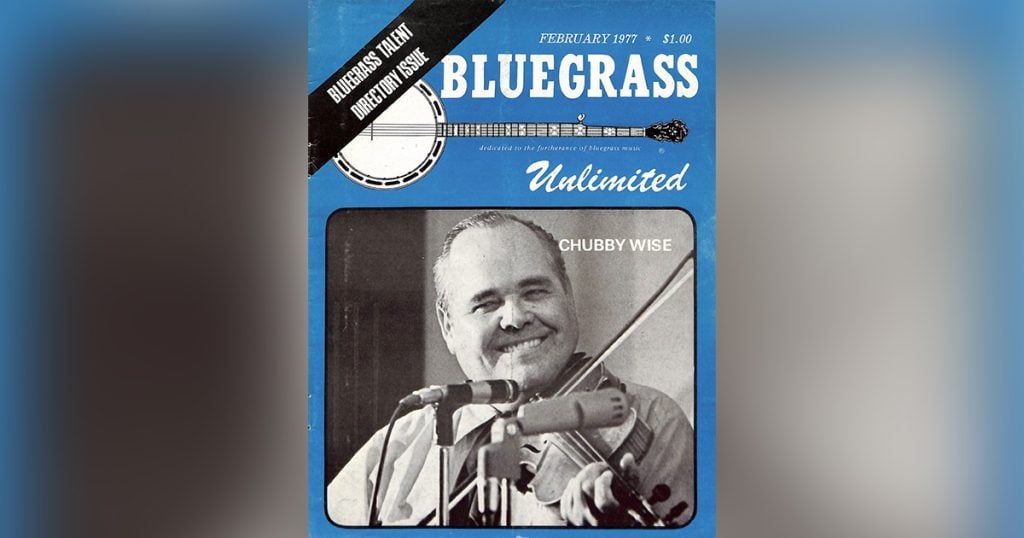
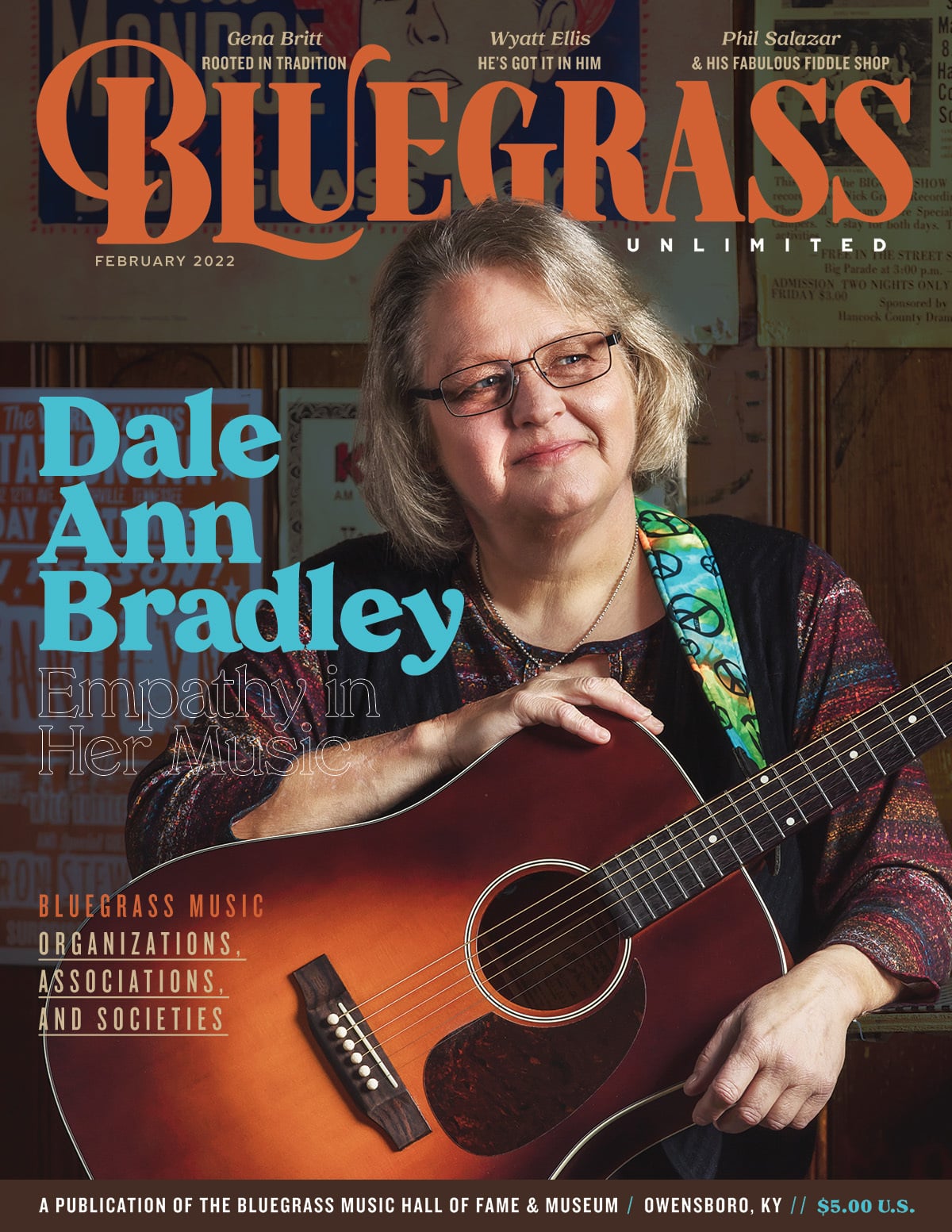
I met and spoke with Chubby at a small bluegrass festival in Wiggins, MS in the early spring of 1989. I have always loved The Orange Blossom Special, having grown up in the 40s and 50s (born in 1940). I left the festival with a happy heart and a personalized autographed picture of Chubby! It is one of my most cherished pictures and is proudly displayed on a wall in my home office!